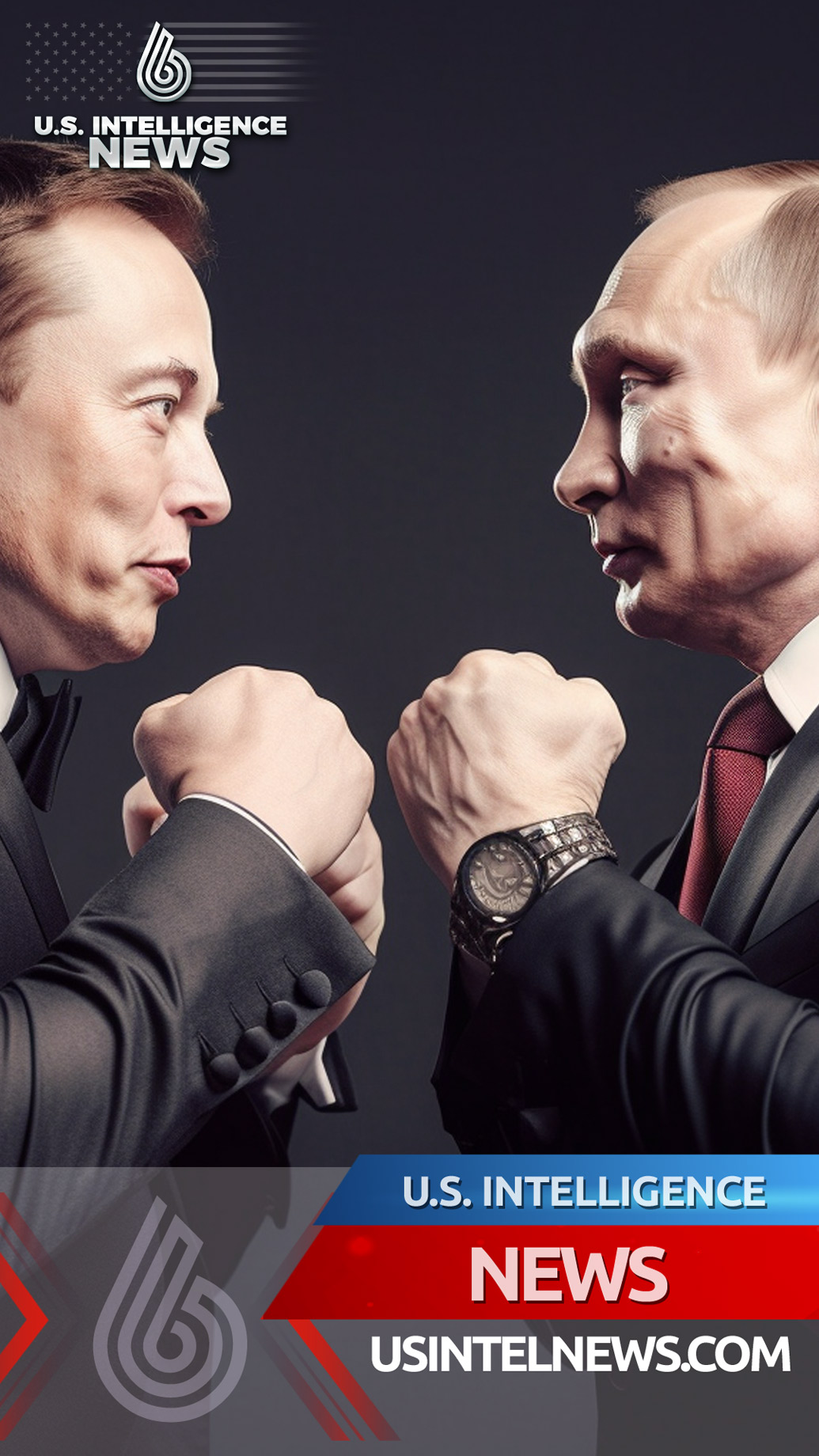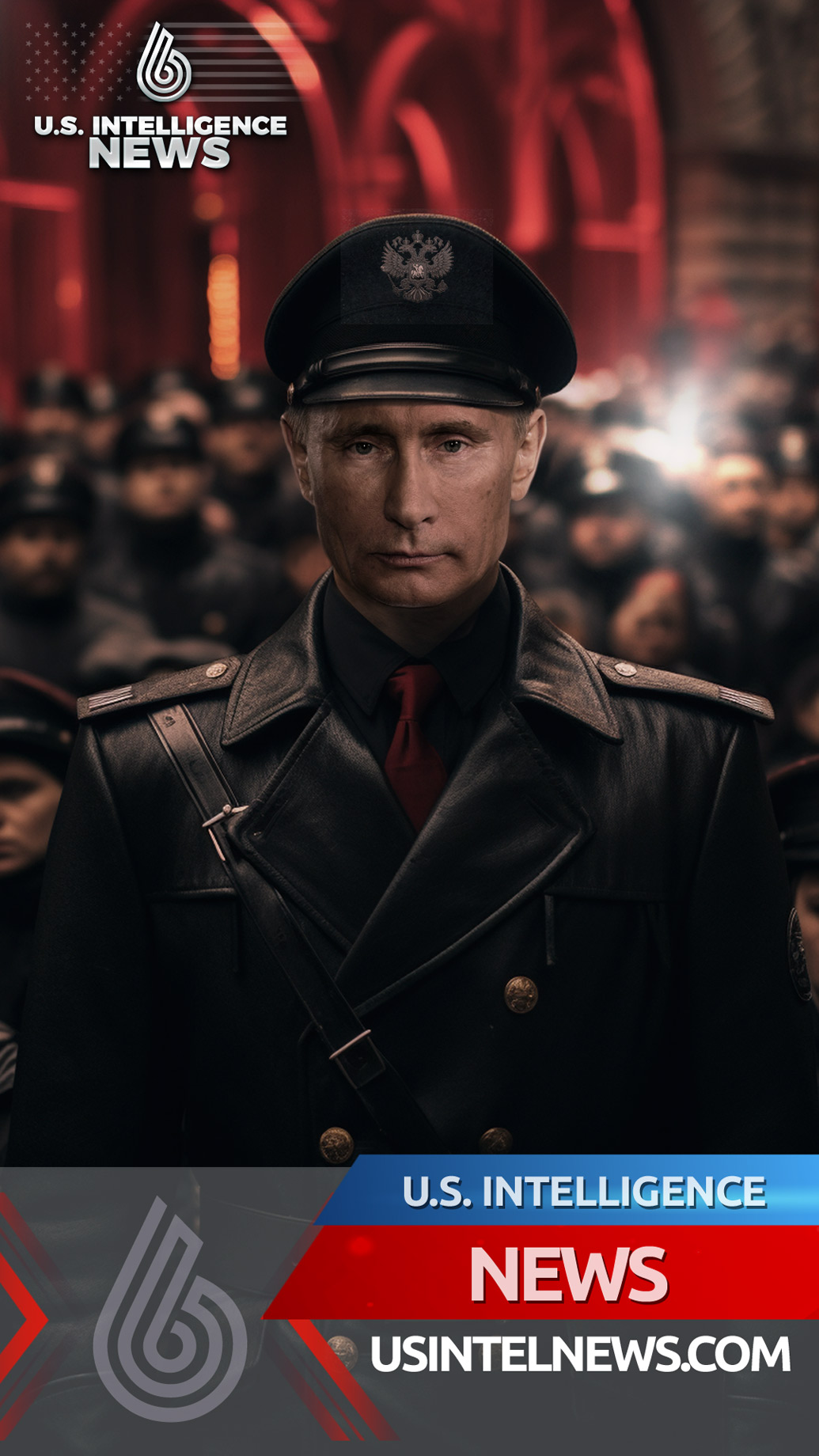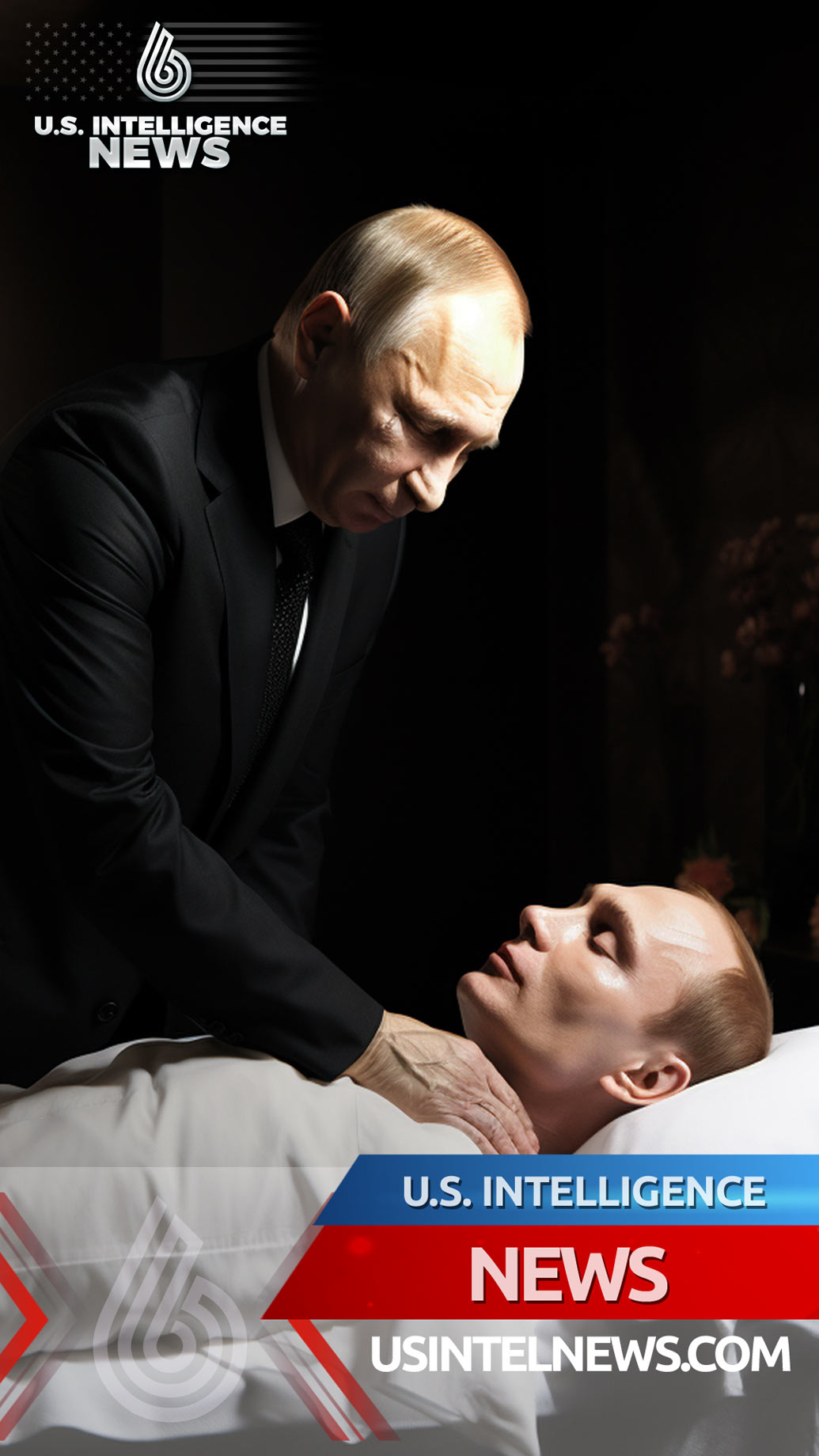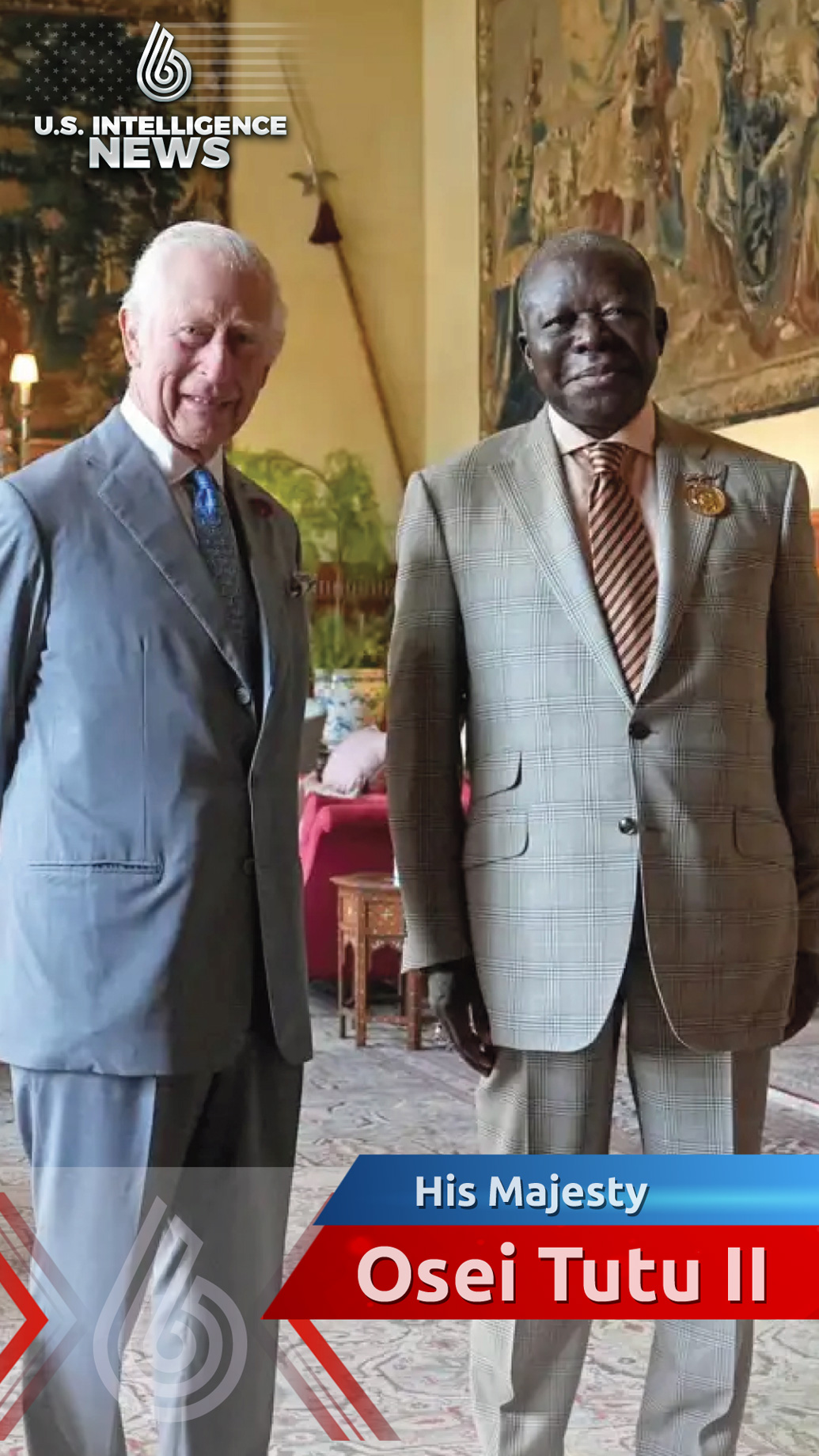
The U.S. Intelligence Community
Élysée Palace
Paris, France
4:08 P.M. CEST
PRESIDENT BIDEN: It’s beautiful.
PRESIDENT MACRON: (As interpreted.) Mr. President, dear Joe, ladies and gentlemen, ambassadors, ladies and gentlemen.
Mr. President, you are honoring us with a state visit to France after — your presence and that of your wife, Dr. Jill Biden, after the 80th anniversary of D-Day in Normandy. And I believe your veterans, our veterans, and those of all the Allies were honored by your presence and that of other leaders on the 6th of June and by the warm welcome they enjoyed while they were there.
But this says a lot about the strength of our alliance and what binds France and the United States of America. This is a unity of blood, shed to address the great challenges of the day, but it is this bloodline that is the connection between our two flags, our two nations.
So, once again, thank you for your presence.
Together with the President, we discussed the great issues that we are facing, the first of which being Ukraine.
Today in Ukraine, men and women are fighting with remarkable courage, determined not to give in faced with the Russian aggression, the unjustifiable aggression. Jointly, we responded to extend our support to this European nations, which is fighting for its survival and its freedom, and we will continue to this as intensely and as long as is necessary.
And I would like to thank you, sir, for the commitment of the United States of America and the recent decisions you recently confirmed whereby you came to our sides and played a critical role in this conflict. This conflict is all about the security and stability of Old Europe.
Many thanks again. And I think we see eye to eye on this war raging in Ukraine. We took joint decisions authorizing Ukraine to fight back, strike its aggressor when defending its territory. We are, of course, making great efforts to arm, train, equip the Ukrainian army.
And we made remarkable decisions. We mentioned the — well, the details of the war, as I said, raging out there. But during the G7, we hope — both hope that all members of the G7 will agree to a 50 billion solidarity fund for Ukraine. And in the peace conference in Switzerland, you will be represented there. This will be a critical stage as well. And, of course, the NATO Summit in Washington, D.C.
As regards to the Ukrainian issue, as I said, we do see eye to eye: respect for international law, the freedom of peoples to determine their own future to self-determination. And thank you for being at Europe’s side.
This close cooperation between France and the United States concerns other crises as well. There should be no dual standards, and although there are many crises around the world, we’re still applying the self-same principles with the self-same determination.
In Gaza, we want to obtain the immediate liberation of hostages, and we can only welcome the liberation of four hostages by the Israeli army.
We want to achieve an immediate ceasefire and open up the prospect of a political solution, which is the only one that can bring about a fair and lasting peace and meet the security of concerns of both people. And that is why we are supporting the comprehensive proposal of the United States of America.
After nine months of conflict, the situation in Rafah and the human consequences are unacceptable. It is not acceptable that Israel should not open all checkpoints to humanitarian aid as requested by the unite- — international community for months.
Operations — Israeli operations should stop their — and the United — the United Nations Security Council has a role to play. But, of course, jointly, we will double down to avoid a regional escalation — in particular, in Lebanon, where we are working on de-escalation on the Blue Line and on the institutional aspect in both countries, working with both and, indeed, all stakeholders to assure that all parties come back to their senses.
Regarding Iran, we know the same thing. There is an all-out escalation: unprecedented attacks against Israel, operations of regional destabilization, and, of course, the Iranian nuclear program.
Both our countries are determined to bring pressure to bear to counter this trend. And this was demonstrated recently enough, a few days ago, by jointly adopting a resolution at the International Atomic Energy Agency. The self-same determination is there. We do not wish to apply double standards.
And that is why we coordinate our efforts in Africa, the crisis in Sudan, in the east of the Democratic Republic of Congo, throughout the region.
And over and beyond this, our two countries, with a mean sense of leadership, will address the challenges of our time, especially those touching the most vulnerable countries. We do wish to achieve a fairer international order. That is the meaning of the Paris Pact for the People and the Planet but also initiative for a more efficient tax system.
We are stepping up the exit from the coal — from coal energy. There will be the conference on the ocean. And, indeed, we are mobilizing efforts on global health. And, indeed, we will be both involved in organizing the Gavi conference here in Paris.
That is also what lies behind this proposition of an Olympic — Olympic Truce, which was proposed by the U.N. just a few days ago.
On the economic front, we are both concerned about China’s unfair trade practices, which bring about overcapacity. This is of such importance for the global economy that we have to act in a coordinated fashion.
During my visit in December ‘22, I explained the consequences of the Inflation Reduction Act on the European economy. We discussed this again. That piece of legislation is useful because it makes it possible — indeed, it steps up the decarbonization of the American economy and, therefore, the implementation of the Paris Agreements.
But, of course, we want to reset, as it were, both our economies — that is the European economy and the — that of the United States of America — in terms of regulation, investment, and on such issues as clean tech, artificial intelligence, and, indeed, agri-food issues.
But, of course, we want to work on the bilateral level for better cooperation. American students, American scientists, American entrepreneurs are more than welcome in this country. We wish there would be more of them.
We also have cooperation based, since the state visit of December 2022, around the civilian nuclear industry.
In the space industry, we want to go further. Indeed, a number of agreements were signed between CNES and NASA on Earth observation or, indeed, the Artemis program.
And also proud to announce that the first high-speed — American high-speed train, built by Alstom, will be commissioned in the United States by year’s end. And that is also a sign of increased cooperation between our railroad industries, and this is a sign of economical cooperation but also a step towards the energy transition resorting to France’s technological excellence.
I would also like to signal the importance of American investors in France. There was the Choose France Summit in France. France will start a new foundation worth 100 million euros to promote university exchanges and exchange programs of research between our two countries. I would like to thank the companies that joined this. In particular, CMA-CGM was very much involved.
This new initiative comes after the success of the Villa Albertine project, where several cities in your country received as many as 180 creators and intellectuals in a matter of two years in about 50 cities.
I shan’t speak longer.
But I would like to say that — regarding the wars around the world inflicting pain around the world on big international issues and on the bilateral front — together with President Biden, we want to have a joint roadmap. We need to trust in the future, trust in progress, trust in innovation, the determination to create jobs not just in the U.S. but in Europe as well. We want to be there when the economy is properly decarbonized, but we want to build peace.
We mustn’t be naïve. We must be on the side of those who resist. We must not be naïve. In other words, we need to find demanding solutions.
But I would like to thank you, Mr. President, to be not — the president not just of the first of the greatest world power but you being clear and loyal partner who respects Europeans and who wants to build on these agreements from the Ukraine to the Middle East, through what we’re taking up today on the economic front.
Thank you. Thank you for being with us today. And thank you for honoring Paris, Normandy, and France during the celebrations with your state visit.
Thank you.
PRESIDENT BIDEN: Well, Mr. President, thank you. It’s — it’s been a great honor to be here, not only the Normandy events, but it was a moving experience for a student of French history to be — the Champs-Élysées today. I — it was a moving experience for us — for the whole delegation.
You know, France was our first friend and remains our — one of our best friends. This week, we reaffirmed that friendship in a deeply meaningful way.
But before I begin my remarks, I want to echo President Macron’s comments welcoming the safe rescue of four hostages that were returned to their families in Israel. We won’t stop working until all the hostages come home and a ceasefire is reached. That is essential to happen.
You know, together we marked the 80th anniversary of the Allied operation that saved Europe and an incredible heroes who carried it out. I found it — 180 brave men — happened to be all men at the time — who came back to Normandy this week with such pride and sense of devotion.
I don’t think anyone who got to meet them, shake their hands, or hear their stories will ever forget their stories or the look in their eyes and the pride they took with what they did. But you could also see them remembering the lost comrades at the same time. You know, the fact is that I know I won’t forget it.
And I want to thank President Macron, Mrs. Macron for — and the people of France for making our heroes feel so welcome, because they did feel welcome. You could feel it. You could see it. And we’ll never forget — we’ll never forget what they did.
And this week, we have showed the world once again the power of allies and what we can achieve when we stand together. That’s what this relationship between France and the United States exemplifies.
You know, we see it in Ukraine, where our two countries are standing with the Ukrainian people as they fight off Putin’s brutal aggression. And yesterday, I announced $225 million in new security assistance to Ukraine. And it’s the sixth package we’ve provided since we signed the national security legislation earlier this year — I wish we could have done it when we wanted to six months earlier, but we got it done — with $61 billion in additional aid to Ukraine.
And I commend France and our European allies for their leadership as well. The EU has proved that — provided over a hu- — 107 billion — $107 billion in assistance to Ukraine since the war began, because we know what happens if Putin succeeds in su- — in subjugating Ukraine, and it won’t — we won’t sto- — you know — you know, Putin not going to stop at Ukraine. It’s not just Ukraine; it’s about much more than Ukraine. All of Europe will be threatened, but we’re not going to let that happen.
The United States is standing strong with Ukraine. We’re standing with our allies. And we’re standing with France. We will not — we will not — say it again — walk away.
And around the world, France and the United States are working together to strengthen secu- — strengthen security and shared prosperity.
In the Indo-Pacific, we stand together for freedom of navigation, transparent governments, as well as fair economic practices.
In the Middle East and North Africa, we work together on issues critical to peace and stability, like food security and counterterrorism.
And the existential threat of climate change, which is just growing greater, we’re working together to accelerate the global transition to net-zero. It is the existential threat to humanity, among — the only existential threat to humanity, including nuclear weapons, is if we do nothing on climate change. I could go on.
Every day, the French people and the American people are connected in countless ways through economic ties, collaboration in science and technology, educational exchanges.
The reason we don’t have more Americans coming, we’re afraid they won’t come home. (Laughter.) It’s such a beautiful — I mean it. This is such an incredible country, such a beautiful country.
And, you know, the fact is that these cherished ties between our families and friends continues to grow.
The bonds between our nations are strong, vast, and rooted in the most important element: shared values. That’s true today, as it’s been from the very start.
In a few weeks, the United States will celebrate the Fourth of July, our day of independence. That feat would not have been possible — it’s not hyperbole — would not have been possible were it not for France coming to our aid.
We’re the — we’re a nation because of France, in large part. You stepped up when we needed help, and you did it. That’s what the Fourth of July is about. That feat would not have been possible, again, without your support, without France’s support.
Today, I proudly stand with France to support freedom and democracy around the world. That’s what this spectacular week is all about.
Mr. President, there is much more we had the chance to talk about. We’re going to continue to talk. You’ve become a good friend, and I really appreciate your — your cooperation and your insights.
Thank you, thank you, thank you.
PRESIDENT MACRON: Merci beaucoup. Thank you, President.
PRESIDENT BIDEN: Thank you.
END 4:25 P.M. CEST
The post Remarks by President Biden and President Macron of France in Joint Press Statements | Paris, France appeared first on The White House.


 The Unconventional Diplomatic Dynamics Shaping Global Relations: Trump, Musk, and Covert Negotiations
The Unconventional Diplomatic Dynamics Shaping Global Relations: Trump, Musk, and Covert Negotiations  Russia’s Dark Power Struggle: Putin’s Corrupt Empire Teeters on the Edge
Russia’s Dark Power Struggle: Putin’s Corrupt Empire Teeters on the Edge 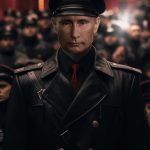 Hunting Russian Evil: How Oligarchs Evade Justice and Protect Their Fortunes
Hunting Russian Evil: How Oligarchs Evade Justice and Protect Their Fortunes  Elon Musk’s Shadowy Alliance with Vladimir Putin: A National Security Threat
Elon Musk’s Shadowy Alliance with Vladimir Putin: A National Security Threat 